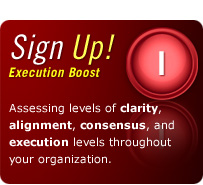February 4th, 2010
by Dr. Brian Higley |
Many of us have been raised reading fairy tales that often end with the heroes living “happily ever after” once they have overcome “the bad guys.” Contrary to the relationship myth of happily ever after, occasional friction in long-term relationships of all kinds (professional and personal) is often unavoidable, no matter how many interpersonal barriers (or “bad guys/ineffective habits”) are overcome. This conflict can be draining and overwhelming if not handled with skill and care. The good news is that if addressed well, interpersonal conflict can actually open the door to more effective and satisfying relations with others.
Because conflict in relationships is a given from time to time, it can be important to develop the ability to avoid unnecessary conflict while facing and resolving the necessary conflicts with others in our lives. This can be done in three phases: (1) identification of avoidable conflicts and minimization of such conflicts, (2) identification of unavoidable conflicts and genuine resolution of these conflicts, and (3) transformation of currently unavoidable conflicts into conflicts that can eventually become more avoidable in the future. (more…)
February 3rd, 2010
by Dr. Brian Higley |
In order to have a truly satisfying relationship with other people we must know our core values (ways of thinking or behaving that we do not want to compromise on) and be able to identify and affirm these values in important others. Having a clear idea of these values helps us and those around us to better know whether or not we can expect to have a smooth relationship or one that will consistently experience dissatisfying “road bumps.” This Interpersonal Expertise Tip focuses on identifying core values in ourselves and others – and how affirm these values in ways that strengthen relationships.
Core values can be affirmed by becoming clear about our own values and helping others do the same. If this is done thoroughly, the chances that we will be able to affirm similarities goes up significantly (longer lists of core values makes it more likely that at least one core value from each person’s list will overlap). Here are some ways people have been able to affirm similar core values: (more…)
February 2nd, 2010
by Dr. Brian Higley |
So often, we can make the mistake of wanting everyone in our lives to be exactly like us; this desire can cause consistent problems in our relationships. After all, surrounding ourselves with others who are exactly the same as us is a sure route to boredom and/or stagnation! Some say that the answer is a more “tolerant” attitude toward those with differences, which can imply that we should simply put up with others’ differences so we can all survive together.
It is our position that true appreciation of differences (rather than simple toleration of them) comes from a realization of how useful our collective differences are to our collective ability to not only survive together, but to thrive. This Interpersonal Expertise Tip focuses on identifying how our differences can be turned from annoyances or experiences to be tolerated to opportunities for satisfaction, achievement and/or growth – for all people involved. (more…)
February 1st, 2010
by Dr. Brian Higley |
One of the most popular lines in movie history is the famous “you complete me” line that Tom Cruise said to Renee Zellweger near the end of the movie “Jerry Maguire.” This is a truly memorable movie line, but it can perpetuate one of the major myths to relationship satisfaction: the idea that significant others (business partners, friends, romantic partners) “complete” us. It sounds nice at first, but what happens when that other person is not in our life (either temporarily or permanently)? We are left as an incomplete person! This Interpersonal Expertise Tip focuses on how to create relationships that help us to access more of our potential – rather than cultivate feelings of dependency – while also encouraging growth in significant others in our lives as well.
Allowing our relationships to promote personal growth rather than dependency can be facilitated by a realization that such relationships can help us become more of who we already are (and provide the same opportunity to others). Here are some ways people have been able to utilize their relationships to access more of their own potential and help others do so at the same time: (more…)


